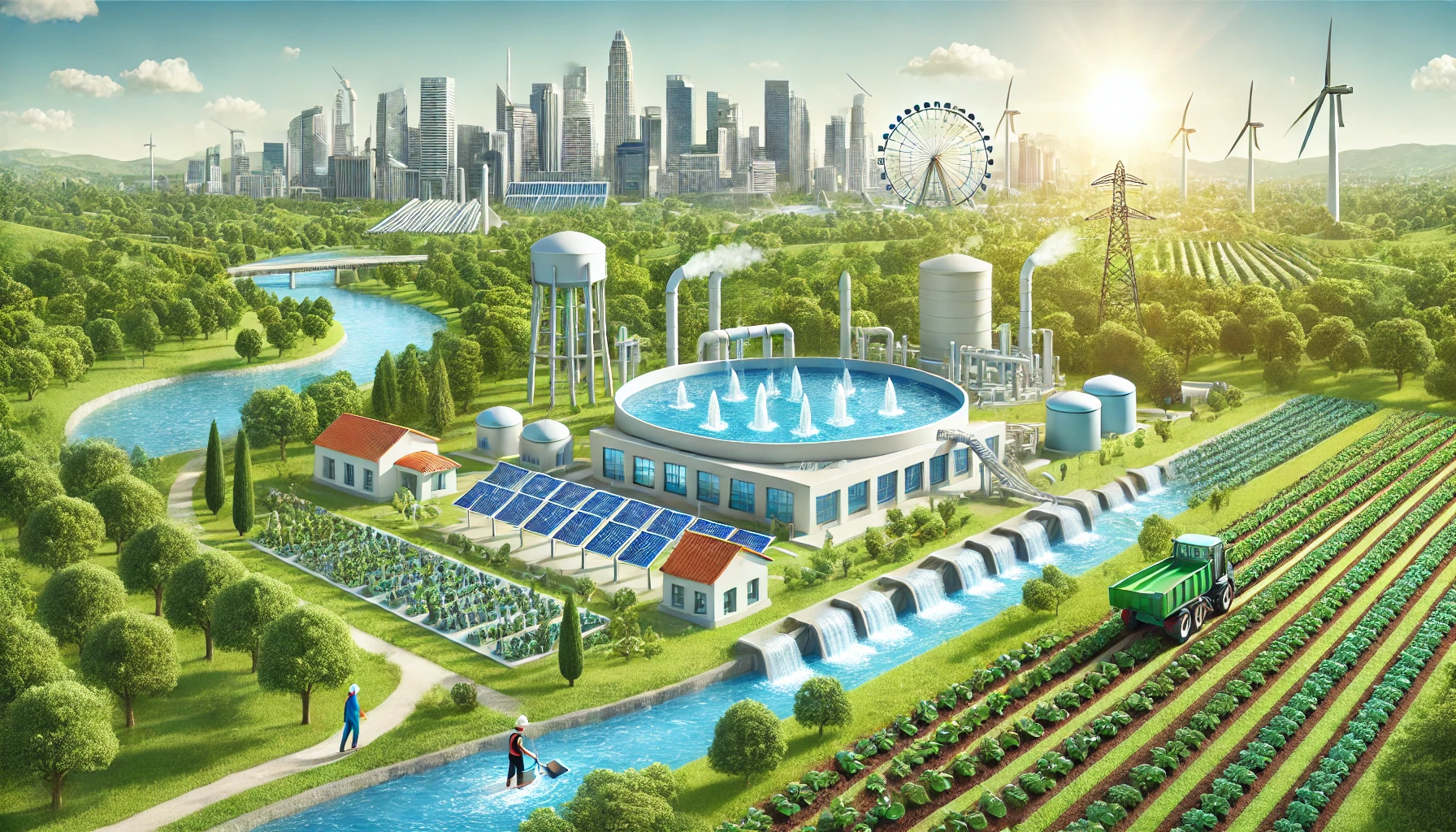Advancing Water Security with Partnerships, Innovation, and Scalable Solutions
The 2030 Water Resources Group, managed by the World Bank, fosters public-private partnerships to address global water insecurity by implementing innovative, data-driven solutions, unlocking financing, and promoting sustainable water management practices across agriculture, cities, and industries. Through successful projects in Mongolia, Bangladesh, India, and South Africa, WRG demonstrates how collaboration and scalable approaches can transform water resilience and drive economic development.

The 2030 Water Resources Group (WRG), managed by the World Bank’s Global Water Practice, is pioneering collaborative solutions to address global water insecurity and climate change impacts. Bringing together governments, private sectors, and civil society, WRG works to ensure water security by combining evidence-based decision-making, multi-stakeholder platforms, scalable implementation, and innovative financing models. By using tools like hydro-economic analyses, water diagnostics, and climate development reports, WRG prioritizes interventions in agriculture, urban water systems, and ecological sustainability. Through impactful case studies across Mongolia, Bangladesh, India, and South Africa, WRG demonstrates the effectiveness of public-private partnerships (PPPs) in tackling complex water challenges.
Tackling Water Pollution Through Policy and Investment in Mongolia
In Mongolia, WRG successfully addressed severe water pollution in Ulaanbaatar, where industrial wastewater discharges threatened limited freshwater resources. A hydro-economic analysis identified wastewater recycling as the most cost-effective solution to close the demand-supply gap. However, regulatory barriers and the absence of incentives for reuse hindered progress. WRG collaborated with stakeholders to develop a Water Pollution Fee Law, introducing financial incentives and monitoring systems for industries to treat and reuse water. This regulatory reform, combined with national standards for wastewater reuse, unlocked $98 million in funding from the Millennium Challenge Corporation for the construction of a major water recycling plant in Ulaanbaatar. Local industries, including mining companies, adopted voluntary water management codes, reducing discharge volumes and improving freshwater reliance. This case exemplifies how WRG’s innovative solutions align incentives, unlock finance, and transform water management systems.
Reducing Industrial Water Pollution in Bangladesh’s Textile Sector
In Bangladesh, untreated wastewater from the textile sector has contributed to annual economic losses of $2.8 billion. To address this, WRG formed the Bangladesh Water Multi-Stakeholder Partnership in 2015, a platform backed by government approval. This partnership prioritized water security challenges, introducing rules under the Bangladesh Water Act, green economic zone guidelines, and real-time river water quality monitoring. Strategic interventions aligned with the Bangladesh Delta Plan 2100 aim to mobilize $550 million in financing for wastewater treatment systems, benefiting 20 million people. WRG also developed Bangladesh’s first PPP financing model for municipal wastewater management in Gazipur City Corporation, home to 2.5 million people. By expanding this model to other cities like Cumilla and industrial zones, WRG is paving the way for transformative pollution control and improved urban sanitation systems.
Transforming Agriculture with Climate-Smart Practices in India
India’s Uttar Pradesh, the country’s second-largest rice-producing state, faces severe water stress and high greenhouse gas emissions from traditional rice cultivation. In response, WRG launched the PRAGATI program to transition 1 million smallholder farmers to sustainable agricultural practices. By collaborating with 26 private sector partners, WRG developed a micro-irrigation platform to lower farmer costs, increase productivity, and scale mechanization solutions. The program also integrates digital tools for credit access, equipment rentals, and targeted capacity building, with a focus on empowering women farmers. Supported by the World Bank’s $350 million Uttar Pradesh Agriculture Growth and Rural Enterprise Ecosystem Strengthening Project (UP AGREES), PRAGATI has already delivered significant economic gains, reducing costs by 30-40% and accelerating climate-smart farming adoption. This project showcases WRG’s success in aligning economic incentives with environmental sustainability for vulnerable farming communities.
Ensuring Water Security in South Africa’s Economic Heartland
South Africa’s Gauteng region, home to one-quarter of the country’s population and contributing one-third of its GDP, faces a critical water supply gap of 400 million liters daily. Recognizing the economic risks, WRG established the Gauteng Water Security Partnership to bring together public institutions, private sector stakeholders, and civil society. This platform facilitates priority interventions to reduce demand, expand wastewater treatment, and unlock innovative financing mechanisms. While short-term investments focus on reducing consumption, the partnership highlights the need for medium-term investments to address systemic infrastructure and financial weaknesses. Through this initiative, WRG is strengthening regional water resilience, ensuring economic stability, and piloting scalable solutions for broader implementation.
Scaling Innovative Financing for River Rehabilitation in India
In India, the Ganga River basin supports over 600 million people and accounts for 40% of the country’s GDP, but untreated municipal sewage severely pollutes this vital waterway. WRG partnered with the Indian government to develop the country’s first PPP financing model for wastewater treatment using a hybrid annuity approach. This model links private sector payments to performance-based milestones, ensuring accountability and measurable results. Initially piloted in Mathura and Vrindavan, the approach has expanded to 13 cities across the Ganga basin, mobilizing $1.5 billion in investments, with $650 million sourced from private financing. By scaling this model, WRG has reduced untreated sewage discharge, demonstrated the financial viability of wastewater solutions, and strengthened water quality for millions of people.
Advancing Global Water Security Through Collaboration
WRG’s work exemplifies how innovative partnerships and evidence-based approaches can address the world’s most pressing water challenges. By aligning governments, private sectors, and financing institutions, WRG delivers scalable solutions that bridge policy gaps, unlock funding, and improve water resilience. Whether tackling industrial pollution in Bangladesh, transforming agriculture in India, or rehabilitating vital water resources in Mongolia and South Africa, WRG’s efforts emphasize trust-building, stakeholder engagement, and measurable results. With its adaptable framework and focus on sustainability, WRG is driving global progress toward water security and climate resilience, ensuring that water remains central to economic development and environmental health.
- FIRST PUBLISHED IN:
- Devdiscourse










